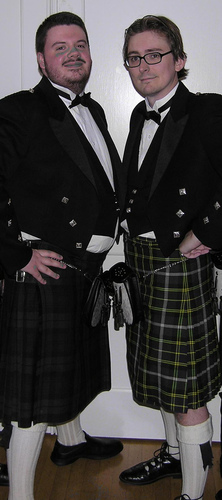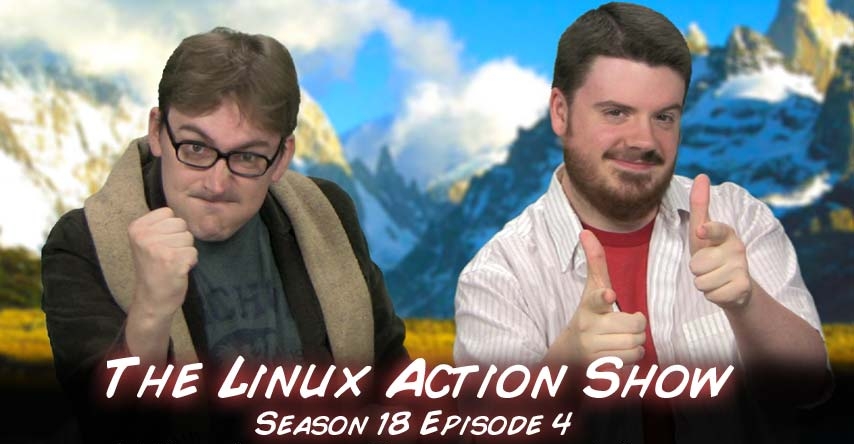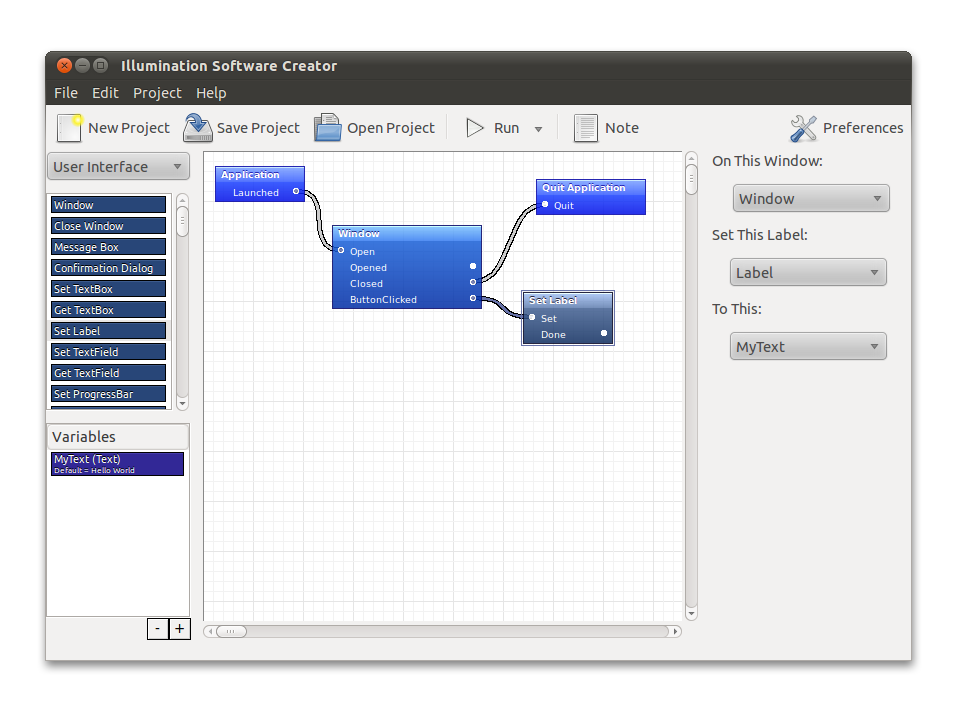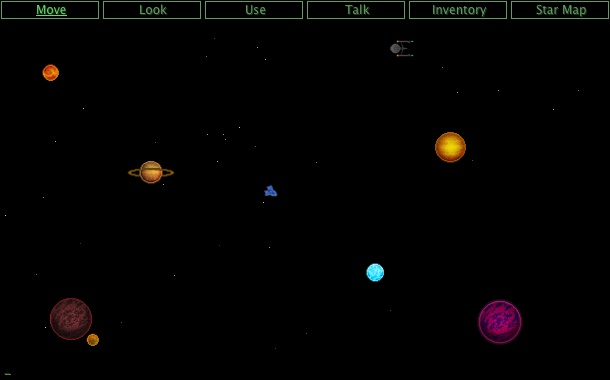Bryan Lunduke is a programmer of cross platform software since the 1990’s, a project leader to many teams and a self-declared nerd. Moreover he is a genuine guy, that is well known from Linux Action Show. LAS is probably the most entertaining tech show about Linux out there and it covers pretty much everything.
Yes, pretty much everything from a Stallman live interview to a Windows 8 hilarious review. On regular basis covers tech news, Android Apps, Linux Distros and hosts discussions with experts about server/client software and much much more..
I really really really reckon you to watch this show, it simply rocks! Together with Bryan is Chris Fisher and they both are the founders of the show back in 2008.
LAS is broadcasting live every Sunday at 10:00am Pacific time ( 06:00pm Greenwich time for fellow Europeans) @Jupiter Broadcasting and is released every Sunday at 08:00pm PST (04:00am GMT).
Getting back to Bryan you can visit his homepage @Lunduke.com and learn more about his work, buy some of his games if you feel you like them, or hack with lunduke lang. Also don’t forget to watch his 50 min session Why Linux Sucks (As Usual) at Linux Fest Northwest.
Finally I want to thank Bryan that despite his tight schedule found some time for this enormous questionnaire 🙂
*Linux is a shortcut to Linux Desktop
- Bryan Lunduke & Chris Fisher, the founders of LAS
I SOFTWARE
Q: When you’re reviewing some software, you have this style “OMG what a crap idea, @#$%^ …(2 sec later for the very same software), “hey you guys doing awesome job..”. Obviously there are good and bad things in a software. What separates the line, what irritates you?
A: Even when project has something in it that I think is “a crap idea”… that doesn’t mean the entire project is bad. It’s worth pointing out both the good and the bad. That’s part of what I do. As far as what irritates me… that’s a big question. 🙂
Q: Give me 3 popular Linux softwares that you would rating as platinum.
A: Three desktop Linux pieces of software that I would rank as “platinum”? That’s a tough one! Right now I’m fairly enamored with Xmonad. A great DE with a code-base that’s worth studying. As for other, more generic, types of applications — that gets tough. Stuff I tend to be running 24×7: SyncTerm, DOSBox, Illumination Software Creator, Gedit and Inkscape.
Q: In Linux we don’t have Adobe Suite, we don’t have Autodesk, we don’t have Bioware. Instead we have 3-4 kernels, in case that someone fails. One guy says “Look what I got, I got Dragon Age 2” and the other replies “Hey I just got 3.3.0.2-rc4-PAE”.. What is more exciting for you?
A: Ha! Well, that’s not really a fair comparison. But I do see your point. I get excited about both. For me, I like truly interesting software. Regardless of if it be a closed source game 
Q: On the other hand Linux doing great on server side. Basically Linux servers Windows. That means Linux is a servant to Windows? Can Linux get its 4th of July ?
A: Will Linux be dominant on the Desktop? I really don’t know. But I don’t know that it really needs to. At this point we have a large enough Desktop Linux user-base to support indie developers of apps and games. To me, that’s the sweet spot where you get to see truly interesting, innovative software (both open and closed source). That said, I expect Linux market-share percentage to increase over the next year or two by a noticeable amount.
Q: Nowadays software moving on Web Side. Finally the Linux will catch up with Windows. Both platforms would have the same Apps. Ironically at that point Linux will lose its importance, as the big player will be the Web Browser. Stability, Speed and Security would be almost exclusively related to the Browser.
That brings on my mind Chrome OS and its last changes. Can we name Chrome OS the Linux Desktop of the new Era? Does Linux need a new Desktop Era?
A: Nah.
Q: Continuing from above, imagine an ecosystem that everything would function on the Cloud. That almost happens today. Emais, Socials, Games, Search Engines, File Sharing etc.
How many of these services are open? How many of these services could be open? I think “That’s will be the end of open software.” And there is the Wiki exception. Comment please.
A: I’m not terribly interested in having everything live “in the cloud”. That just doesn’t “do it for me”. Don’t get me wrong, there are some real benefits to having all of your data be served, from a central repository somewhere, to all of your computers and devices. But, to me, a communication tool is a communication tool. And “the cloud” is, in most cases, just asking for usability troubles.
Q: Let assume that the whole Board of Directors of Google, go for a Christmas Holidays trip on United Kingdom for having a carefree time. Unfortunately they get infected with the Crazy Cows disease. On their next board meeting they decide to give for free all Google Code, plus most of their facilities.
Two days later we have 50 search engines that they do more or less the same thing. Day 3, we have a search engine that searches for search engines. Day 5, 30 out of 50 search engines having bugs or they are down. Finally we end up with 2 search engines that they have 90% of the market, and even if they are open, they earn millions by advertises.
A: Ok. I’m imagining it. Sort of a “28 days later” scenario.
a) Closed software is here to justify the open, or vice versa?
A: “Closed” and “Open” source are just two aspects of the many ways of dealing with the software development life-cycle. They are both inter-twined… and unrelated.
b) Software diversity is always good?
A: I’d say that “Software diversity is (usually) always good (for the most part)”.
c) 100% open software would will lead us on better services?
A: Not necessarily. There are many development methodologies out there, and many of the ones that focus on open source development are quite excellent. The net result can be some truly fantastic online services based on those methodologies. But I’ve also see some amazing online services build in very old-school “waterfall” ways.
- Illumination Software Creator get it @ radicalbreeze.com
II DESKTOP ENVIRONMENTS
Q: I remember on your older shows, you were blaming Ubuntu a lot. Lately it seems you changed attitude. So, does Lunduke get paid from Canonical or he thinks Ubuntu is moving on the right direction with 12.04?
A: I simply tell it like I see it. The Ubuntu team, in my mind, is doing some great stuff. In the past I’ve been a bit harsh on them about a few things — but that is because I knew they were capable of accomplishing even greater things than they already were. The same holds true for the Fedora Project. They have some astoundingly talented individuals working on various aspects of Fedora. I feel like, with the right kick in the pants, they could pull off some things that would blow us all away.
Q: LAS got a new nice addition, reviewing a random Distro. However there is a new fashion today. People develop distros with DE on mind and people pick the distro according to the DE. Do you think that people are looking desperately for a better DE because all current DE suck , or they are doing it for hobby?
A: It’s a result of the major two DE’s undergoing a major change at the same time, combined with the development of Unity. Lots of change, all at once. Change makes people freak out a bit. And when people freak out, they look elsewhere.
Q: Gnome Shell seems like an empty painting canvas that anyone can draw awesome DEs on it. I think is the first time on the computer history that a DE enables almost everyone to design he is very own interface. Is that we can call freedom?
A: Gnome Shell is astoundingly easy to customize. So is KDE right now (though via very different ways). Personally I love the heck out of this. To me, this is putting the power in the user’s hands. Is it “freedom”? 🙂 “Freedom” is a bit of a loaded word in our corner of
the world… so I’ll just say “I like it very much”.
Q: On the other hand there is Unity, that it isn’t even released upstream. Nobody bothers to include Unity in his distro except Canonical. Is because of its license, because it stinks, or any other reason? Would you call Unity an Open Project or a Semi Open?
A: Unity is absolutely an open source project. There is a large community of Ubuntu-focused developers that contribute to it. Unity really only just recently hit its stride. I’d expect more small distro’s utilizing Unity going forward.
Q: You are using Aswesome DE. You have said, ”hmm GNOME seems awesome but it’s not for me”. Actually you use that sentence quite often when you’re reviewing a DE. GNOME, KDE and Unity are DEs that are meant to be used from everyone. Awesome is a DE that is meant to be used from no one. You are a good example of a guy that will never be happy with a DE.
Don’t you think that a single DE can fulfill everyone’s needs? – Don’t just say no 🙂 –
A: No. 🙂
Q: Love it or hate it , GNOME 3 is one of the most intelligent DE out there, together with Mac Lion. Apple spends millions for Mac. GNOME costs much less. Can the guys that develop open source compete the guys that have huge payrolls? Do you think that the best programmers will always work for the Apple coz it pays better?
A: I think that MacOS X is a mess. Slow, buggy, cumbersome to use, hard (next to impossible) to customize and generally inconsistent. Personally, I would rather use Unity, Gnome Shell, KDE, XMonad, Awesome and XFCE over MacOS X. I think small, dedicated, focused teams can do amazing things and, in most cases, blow away what the bigger teams can accomplish.
- 2299: The Game
III STAR SYSTEM
Q: Few weeks ago you had a live phone interview with Stallman. I refer its name because it “sells”. Just posting “Stallman” word gets you 1$ from Google Ads a day. Stallman wants every intangible thing to be free. Although his name is free for use, it is also quite commercial. Can you understand this concept?
A: To be clear, in our interview, Stallman also made it clear that (at least some) tangible goods should be “Free” (using his redefinition of the word) as well. Including things like paintings.
Q: I have seen a guy asking Linus an autograph. Do you think that a developer can be a star?
A: Absolutely. When I go to nerd-fests (such as Linux Fest NW, which wrapped up a few days ago) there are always people there that everyone talks about. Being a Linux celebrity may be a sub-niche of the larger Geek/Nerd world… but there are definitely celebrities among us.
Q: I watch your LAS show not for the news. I like the way you comment things, and even if you had a cooking show I would watching. LAS is kinda my Prison Break. Do you feel like acting on stage?
A: Thanks! I do my best! Don’t tell anyone this… but I’ve done a heck of a lot of acting in my day...
Q: Mark Shuttleworth advertises Unity a lot. Unity 4 TVs, Unity 4 Androids, Unity 4 Tablets, Unity 4 Washing Machines. At the same time Unity 4 Desktops has an impressive 3/5 stars only rating in Software Center. It should be the lowest rating for a popular open source software, and that arises out of the Ubuntu Community. Outside things are even worse. Do you think that Shuttleworth is optimistic, realistic or a guy that has earned the right to be arrogant?
A: I really don’t think Shuttleworth is arrogant at all. He’s optimistic and hopeful. Combine that with ambition… and it comes across as a bit arrogant sometimes. But it definitely is different.
As for the rating for Unity… I expect that will improve a lot this year. Unity, in Ubuntu 12.04, is quite nice. I think they did something very cool there. Sure, Unity had a rough start, but in the latest release it’s pretty doggone good. And, from what I’m hearing, a lot of people feel the same way.
Q: Steve Jobs and Bill Gates. You might don’t know Linux but you will know these two guys. Creation needs strong Personality, or Personality leads to good Creation?
A: Designing by comity usually tends to break down. Things go slower. Less risks are taken. In order to do something remarkable, you often need to have someone with a strong personality to lead the charge. Doesn’t need to be a full-on dictator… but definitely a strong leader to set the tone, set the goals and keep things moving.
IV WORKSHOP
Q: It was really funny when you mentioned that GNOME developers design GNOME at their Macs. They don’t suffer from their own creations. Do you play 2299: The Game? Do you enjoy more coding or playing it?
A: I do! Well, I did. 2299 is an adventure game. And, having written every single line of dialog — and then played it through so many times for testing it — it’s not quite as enticing to go back and re-play right away. 🙂 It’s like writing your own novel. How many times do you re-read your own book? As for what I like better “coding games” or “playing games” — it’s a different part of me. I like to play games.. until I get struck by some inspiration… then I like coding games.
Q: This nostalgic type of software can be attractive to 15een years old teens?
A: Can my, obviously old-school inspired, games get the interest of kids today — in 2012? Yes. But my audience is decidedly nerdy. A truly nerdy 16 year old and a nerdy 30 year old really aren’t that much different. 🙂
Q: Unfortunately I hadn’t the chance to try any of your games. That’s because they are not free. Considering that you don’t earn millions from these, wouldn’t be better if you had 10k users that play for free, instead of 100 that they pay for it? Moral satisfaction isn’t a strong
factor for releasing open?
A: I definitely don’t earn millions. And there certainly is something satisfying about seeing large numbers of people playing my games. But, to be honest, I don’t see any real reason to release the source code for them. Since I make them available for a bunch of different platforms, and completely DRM free… and under an incredibly flexible license… I just can’t think of any reason to release the code. I can think of drawbacks, but no distinct benefits (for me or the players).
Q: When you design a game, you think what the people want, or what Lunduke wants?
A: Both. I only make software that I want to use. I don’t write tax preparation software, because I have no interest in tax preparation software. I make things that I am passionate about. I love getting feedback from the players (which often get incorporated) but, in the end, it’s up to me to decide what goes in, and what stays out, of a given game.
Q: What is your best work in your opinion ? What other people think is your best work?
A: Oh, that’s a tough one! I love everything. “2299 : THE GAME” was sort of a love letter to old-school adventure games. That game holds a special spot for me. Illumination Software Creator is the most technically intriguing project, for sure. But I’d say that, right now, Linux Tycoon has most people’s attention.
Q: Lunduke lang is for educational/paradigm reasons or you have illusions (jk), that you will get your 200m users by the end of 2015? Why yet another language, what didn’t satisfy you from the existing frameworks?
A: The Lunduke programming language was built out of necessity while building Illumination Software Creator. There really isn’t anything quite like it out there (though it draws inspiration from a bunch of different languages, including Smalltalk, Ruby, Basic and Python). It has been developed to support many of the projects I work on. I have no need for it to become the end-all-be-all of programming languages. Not that I wouldn’t smile like a dope if it became popular.
Q: Lunduke lang probably is more advanced than other well know langs. But what can make such an important software a gold standard ?
A: The only thing that makes a programming language a “gold standard”, really, is usage in projects by a lot of developers. Let’s be honest, C has many problems. But it’s freaking C. It is, to many of us, the grand-daddy programming language simply because so many things have been built in it over the years.
Q: What are the strong keys of Lunduke lang , in what cases Lunduke is the best choice?
A: The Lunduke SDK (and the Lunduke language) are designed to be easy to write (and read) and easy to extend to other platforms. That’s the key. It doesn’t have the most powerful object oriented syntax the world has ever seen. It’s not incredibly terse. It’s just easy and portable.
Q: Any future work that you plan?
A: Always. 🙂
V LUNDUKE
Q: You are busy with a lot of things. One of these is LAS. I guess you do it because you enjoy it. We watch LAS because we enjoy it. There is a another purpose of the show, apart of inform and entertain ?
A: Nah, it’s just fun. The Linux Action Show is great fun to do. I try to bring a different voice to the greater world of Linux punditry — some points of view that, perhaps, don’t get quite as much “air time” elsewhere. But, in the end, it’s about putting on a good, fun show.
Q: If you weren’t into computers what job you think it would fit you more?

Q: Your N900 is getting old, will you be a regular guy with an Android or iPhone?
A: I actually have an Android phone. And an iPhone. (I need both for testing with my software.) Heck, I’ve even got an old Windows Mobile 6 phone back here somewhere. But I always come back to my trusty old N900. It is just the most nerdy phone I’ve found. And nerdy is good.
Q: Any crazy hobby or habit?
A: Oh, jeez. Not that I can think of. I’m pretty public with everything I do. I’m just your average comic book reading/writing, game playing/developing, public speaker with a wife, a kid, a dog, two fish and two goats. Don’t really have time for much else!
Q: Do you afraid that will come a day, that your daughter will trying to teach you how to use an eyePhone and you won’t be able to understand?
A: Nah. At least… I hope not!
Q: There is something else you want to say?
A: Oh, I think that just about covers it. 🙂
Q: So does Linux suck or not?
A: It does. And it does not.
Thank you very much, wish you the best!!








